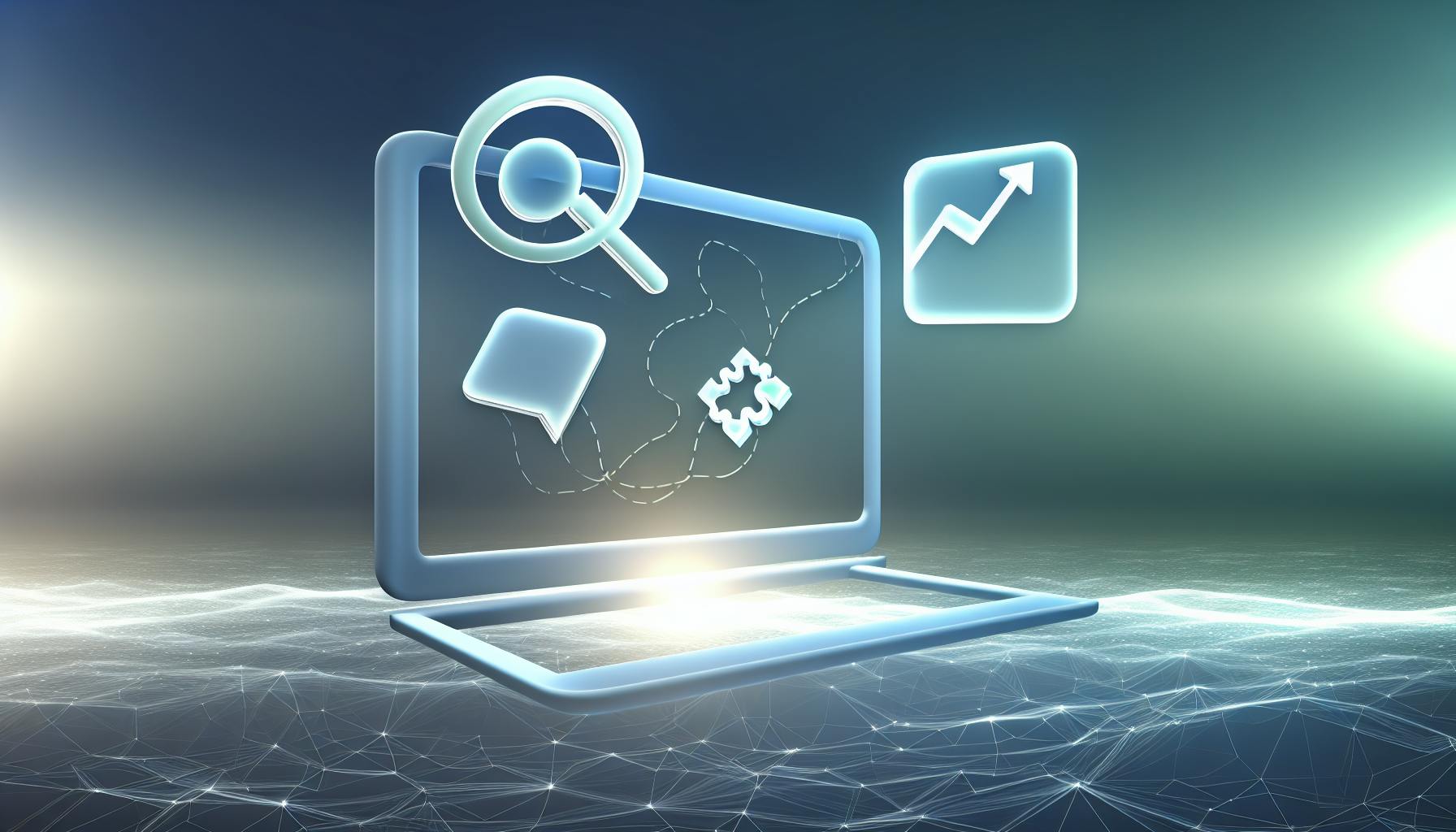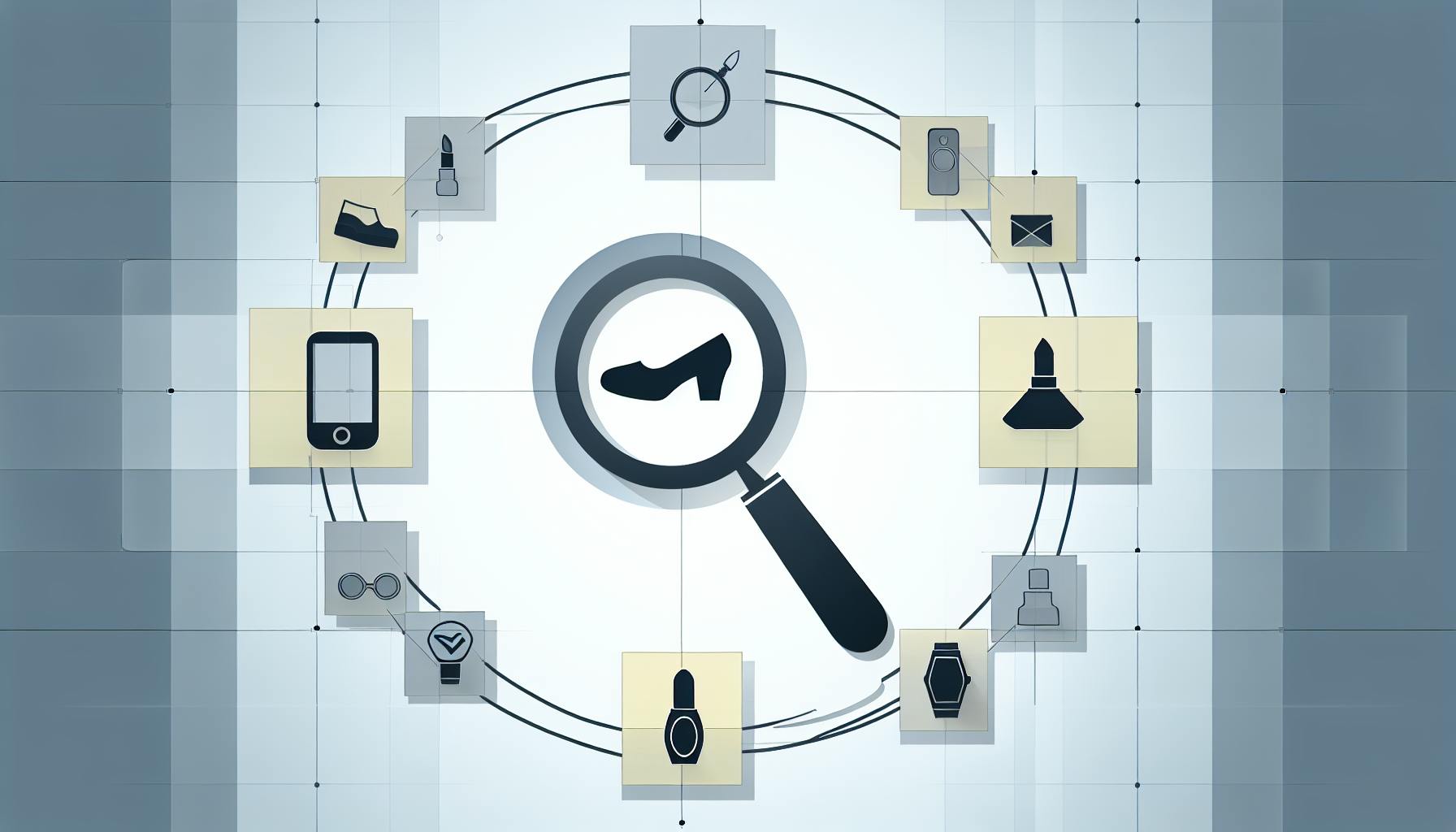Web data scraping services offer a powerful tool for businesses to harness the vast amount of data available on the internet. By automating the collection of information from websites, these services can save time and provide valuable insights for strategic decision-making. Here's a quick overview:
- What is Web Data Scraping? It's the process of using computer programs to automatically gather information from websites.
- Benefits: Saves time, handles large volumes of data, ensures data is collected efficiently and ethically.
- How It Works: Involves selecting websites, extracting data, and saving it in a usable format like CSV or JSON.
- Applications: Used across industries such as eCommerce, finance, real estate, healthcare, chatbots and more for competitive analysis, market research, and customer insights.
- Legal and Ethical Considerations: It's important to respect copyright laws, data protection regulations, and website terms of service.
- Choosing a Provider: Look for experience, technology, scalability, customer service, compliance, data quality, turnaround time, integrations, and pricing.
Whether monitoring competitors, researching market trends, or gathering customer feedback, web data scraping services can provide the insights needed to make informed business decisions.
Importance of Web Data Scraping
Nowadays, for businesses to understand what's happening around them and make smart decisions, they need to look at a lot of data from the internet. Since there are millions of websites out there, web scraping helps by gathering this huge amount of information quickly.
Benefits of Web Scraping Services
Hiring companies that specialize in web data scraping can be really helpful because:
- They can do the data gathering job automatically, saving you time and effort.
- They can handle information from lots of different places on the internet all at once.
- They can deal with big amounts of data that you might need for analyzing things.
- They have the right tools and know-how to get the data smoothly and without trouble.
- They make sure to follow the rules and keep the data safe while they work.
Using web scraping services can really help businesses get ahead by making the most of the data available on the internet for things like keeping an eye on competitors, researching the market, finding new leads, and more. These services are useful for all sorts of businesses in different fields.
Understanding How Web Data Scraping Works
Web data scraping is basically a way to automatically grab information from websites. Think of it as using a special tool to copy data from a website and save it in a way that's easy for us to use and understand.
Web Scraping Step-by-Step Process
Here's how it usually goes down:
- Choosing Websites: First off, you tell the tool which websites you want information from. This could be a few specific sites or lots of them.
- Visiting Websites: The tool acts like a web browser and goes to those sites by asking the internet to show them.
- Looking at Website Content: Once it gets to the site, the tool looks at the website's code to find the information it needs.
- Picking Out the Important Stuff: The tool knows what to look for thanks to rules you set. It focuses on grabbing only the bits of data you're interested in.
- Grabbing the Data: Now, the tool takes the data it found and keeps it aside.
- Saving the Data: In the end, the tool puts all the data it gathered into a format you can work with, like a spreadsheet or a database.
Web Scraping Tools and Technologies
To do all this, web scraping uses stuff like:
- Proxies: These help the tool pretend to be different users so websites don't block it.
- Browsers: Some tools need to act like a real web browser to get data from sites that are more complex.
- Parsers: These are used to read and understand the website's code.
- Scraping Engines: This is the brain of the operation, telling the tool how to find and grab the data.
- APIs: These let the tool send the data it collects to other software or databases.
- Servers: Big projects use powerful computers on the internet to do the scraping.
- Databases: This is where the collected data is stored safely.
Web Scraping Architectures
There are different ways to set up web scraping:
- Browser-Based: This method uses actual web browsers but runs them without showing anything on the screen.
- HTTP Programming: This involves writing code to ask for and receive data from websites.
- DOM Parsing: A way to look through a website's structure to find data.
- Cloud-Based: Running the scraping tools on internet servers rather than your own computer.
- Distributed Scraping: Using many computers to share the workload.
- Headless Scraping: Getting data from websites without needing to open them like a regular user.
- Modular Scraping: Creating tools from parts that can be used over and over in different projects.
Choosing how to scrape depends on what websites you're targeting, how much data you need, and how big your project is.
Applications of Web Data Scraping Across Industries
Web data scraping is used in lots of different areas for a bunch of important tasks. Here's a look at how it's making a difference in various fields:
eCommerce
For online stores, web scraping gathers info on things like:
- Prices
- How much stock is available
- Details about products
- What people are saying in reviews
- What competitors are up to
This info helps with decisions on:
- Setting prices
- Managing stock
- Figuring out ads
- Spotting product trends
- Comparing performance
In short, online shops use web scraping to make smart choices and stay ahead.
Finance
The finance world loves data, and web scraping lets them grab all sorts of useful info from:
- News websites
- Social media
- Online forums
- Official documents
This helps experts:
- Spot good investment chances
- Plan trading moves
- Do thorough checks
- Understand what the market feels
Web scraping helps finance folks get the inside scoop quickly.
Real Estate
In real estate, web scraping pulls info on:
- Property ads
- Sales deals
- Rental prices
- New buildings
This info is used to:
- Price properties right
- Study the market
- Set fair listing prices
- Find leads
- Look for investment spots
Basically, web scraping gives real estate pros the lowdown to make better choices.
Healthcare
Healthcare uses web scraping for things like drug research, watching public health, clinical trials, and more.
It's used for:
- Keeping an eye on disease spread
- Watching drug safety
- Gathering patient info
- Creating health data sets
- Studying health trends on social media
Web scraping helps healthcare use data to improve how we look after people.
Media & Entertainment
In media, web scraping shows:
- What people watch
- How they feel about content
- Performance across platforms
This info helps media companies:
- Plan what to show and when
- Find partners
- See how they're doing
Media folks use web scraping to make more money from their content.
Travel & Hospitality
The travel sector uses web scraping to get data on:
- How full places are
- Room prices
- What guests think
- Online reviews
This helps them:
- Compete on prices
- Make traveling nicer
- Spot what needs work
- Watch what others are doing
In the end, web scraping helps travel and hospitality earn more and keep guests happy.
Legal and Ethical Considerations for Web Scraping
This part talks about the important things businesses need to think about regarding the law, following website rules, and using data in a way that's fair when they use web scraping.
Web Scraping Laws and Regulations
Even though scraping public data is usually okay, businesses need to make sure they:
- Copyright laws: Don't just copy big chunks of content that's protected by copyright without asking. Stick to facts.
- Data protection regulations: If you're collecting info about people, get their permission first. Keep their data safe and don't let it get out.
- CFAA guidelines: Only go to parts of websites you're allowed to. Don't try to get around security stuff.
- Other rules: Follow any specific rules for your industry or area. If you're not sure, talk to someone who knows.
To stay out of trouble, have clear rules about how you handle data and write down why and how you're scraping.
Respecting Websites' Terms of Service
- Check the website's rules before you start scraping.
- Follow any limits or no-go areas they mention.
- Don't scrape so much that you slow down their site.
- Let them know it's your scraper working by using a special web scraper identifier.
If you don't follow their rules, they might take you to court. Try to talk to them if you can.
Implementing Ethical Safeguards
- Always think about people's privacy. Don't take personal info without asking.
- Be sure about what you'll do with the data. Stay away from anything shady.
- Keep data safe and decide how long to keep it.
- Don't mess up the website's running. Slow down your scraping if needed.
- If you can, get permission and be open about what you're doing.
Being fair and careful builds trust with both website owners and people whose data you're using. Always aim to scrape data in a responsible way.
sbb-itb-9b46b3f
Choosing the Best Web Scraping Service Provider
Key Evaluation Criteria
When you're looking for a company to help you collect data from websites, it's important to consider a few things:
- Experience: Find a company that's been doing this for a long time. They should know how to handle tricky situations and work with different types of websites.
- Technology: Make sure they have the right tools to get the job done well, especially if you need a lot of data.
- Scalability: The company should be able to handle more work if you need it, whether it's a one-time job or something ongoing.
- Customer Service: It's important they can quickly help you if you run into problems.
- Compliance: They should know the rules about collecting data to keep you out of trouble.
- Data Quality: Check if they can give you the data in a clean and useful format.
- Turnaround Time: Find out how fast they can get you the data.
- Integrations: It's handy if they can send the data straight to where you need it, like your database or analytics tool.
- Pricing Model: Make sure you understand how much it will cost and that it fits your budget.
Conclusion
To wrap things up, web scraping services are a big help for companies to make the most of the internet's data. This helps them make better choices and grow in their industry.
Key Takeaways
- Web scraping is about using tools to automatically collect lots of data from websites.
- This data helps companies make smart decisions.
- It's important to scrape data in a way that's fair and follows the law.
- Picking the right web scraping partner is crucial.
Web scraping is super useful for companies that want to stay ahead by understanding lots of data from the internet. It helps them keep an eye on what their competitors are doing, understand what customers want, and find new chances to get better.
But, using web scraping the right way matters a lot. There are rules about copying content, keeping people's information private, and making sure not to break the website's rules. Working with a web scraping company that knows how to follow these rules is important. They should know how to get lots of useful data without causing any trouble.
The insights from web scraping can really change how a company makes decisions and stands out from the competition. But, if you don't follow the rules, you could end up in legal trouble or hurt your company's reputation. Choosing a web scraping partner with experience and good principles means you can use web data safely and effectively to help your business grow.
Related Questions
What are web scraping services?
Web scraping services use special computer programs to automatically gather information from websites. This can include text, pictures, files, and more. The information collected is then organized and saved in formats like CSV, JSON, or databases for further study. Web scraping is used for things like:
- Checking competitor prices
- Finding potential customers
- Doing market research
- Keeping up with news
- Analyzing public opinion
- Creating data sets
By using web scraping, businesses can quickly collect a lot of information from the web to learn valuable insights.
What kind of data can you get from web scraping?
Web scraping can grab various types of data from the internet, such as:
- Product details and prices
- Customer reviews
- Company info
- Contact details
- Articles and news
- Pictures and videos
- Data from HTML tables and lists
This data can help with many things, from setting prices to training computer programs. For example, pictures from websites can be used to help computer vision programs learn, text can help with language models, and customer data can make recommendation systems better.
What is a web scraping job description?
A web scraping job involves using tools to collect data from websites. This data is used to analyze competitors, market trends, prices, and more, helping businesses do better.
Typical tasks in a web scraping job include:
- Finding valuable websites for data
- Setting up and improving data collection methods
- Keeping the data collection system running well
- Making sure not to break website rules
- Organizing the data for analysis
- Working with others to meet the needs of the business
How do companies use web scraping?
Companies use web scraping to collect data for analyzing the market. This includes information on competitors, industry trends, and what customers like or don't like. By gathering data from different sources, businesses can better understand their audience and make smarter marketing choices.
Some ways companies use web scraping are:
- Watching what competitors charge and offer
- Looking at customer opinions in reviews
- Creating lists of potential customers
- Collecting real estate data for investment decisions
- Making data sets for computer learning models
- Following new developments in drug trials
Web scraping provides the information businesses need to make decisions based on data from across almost any field.


